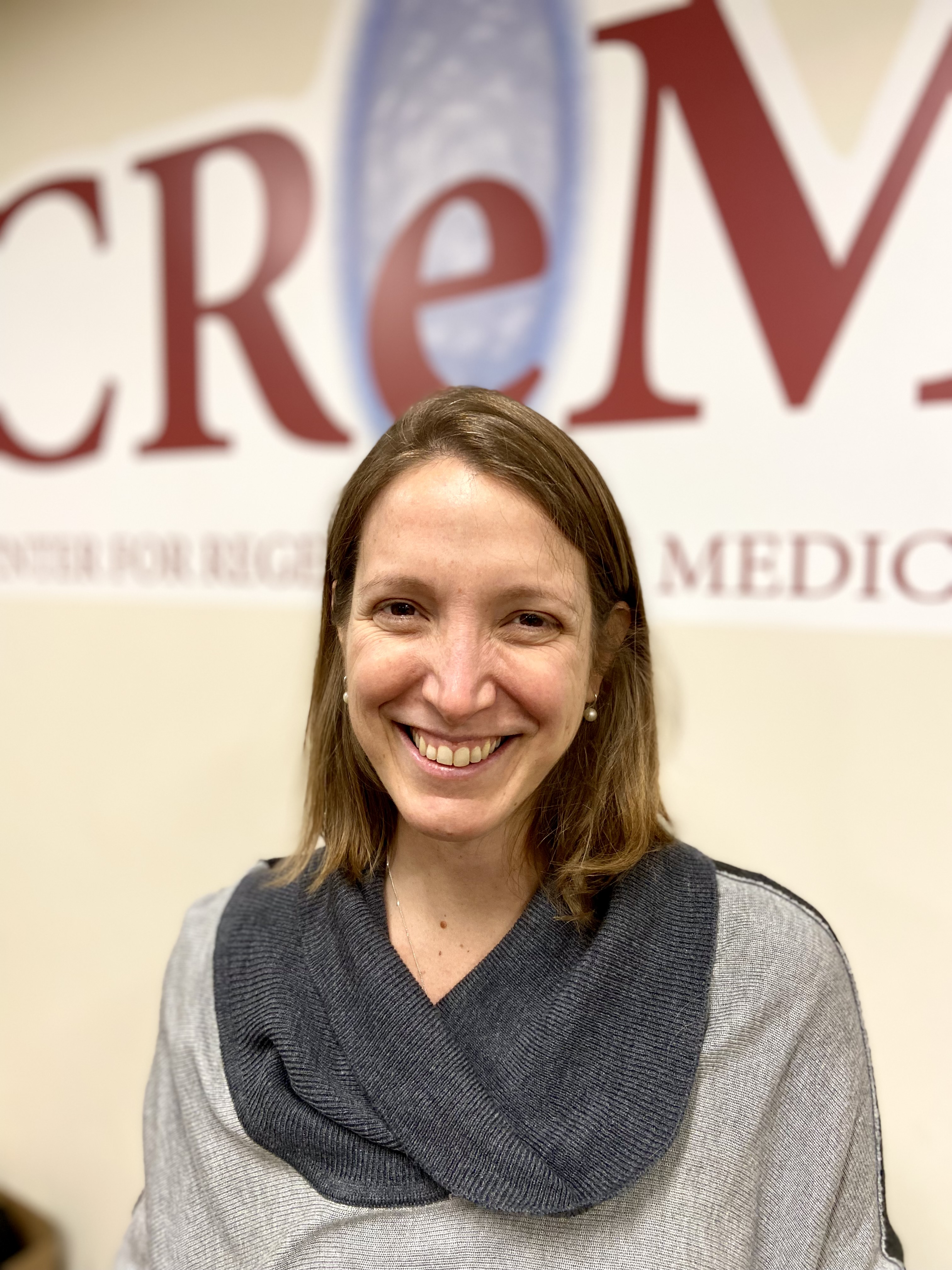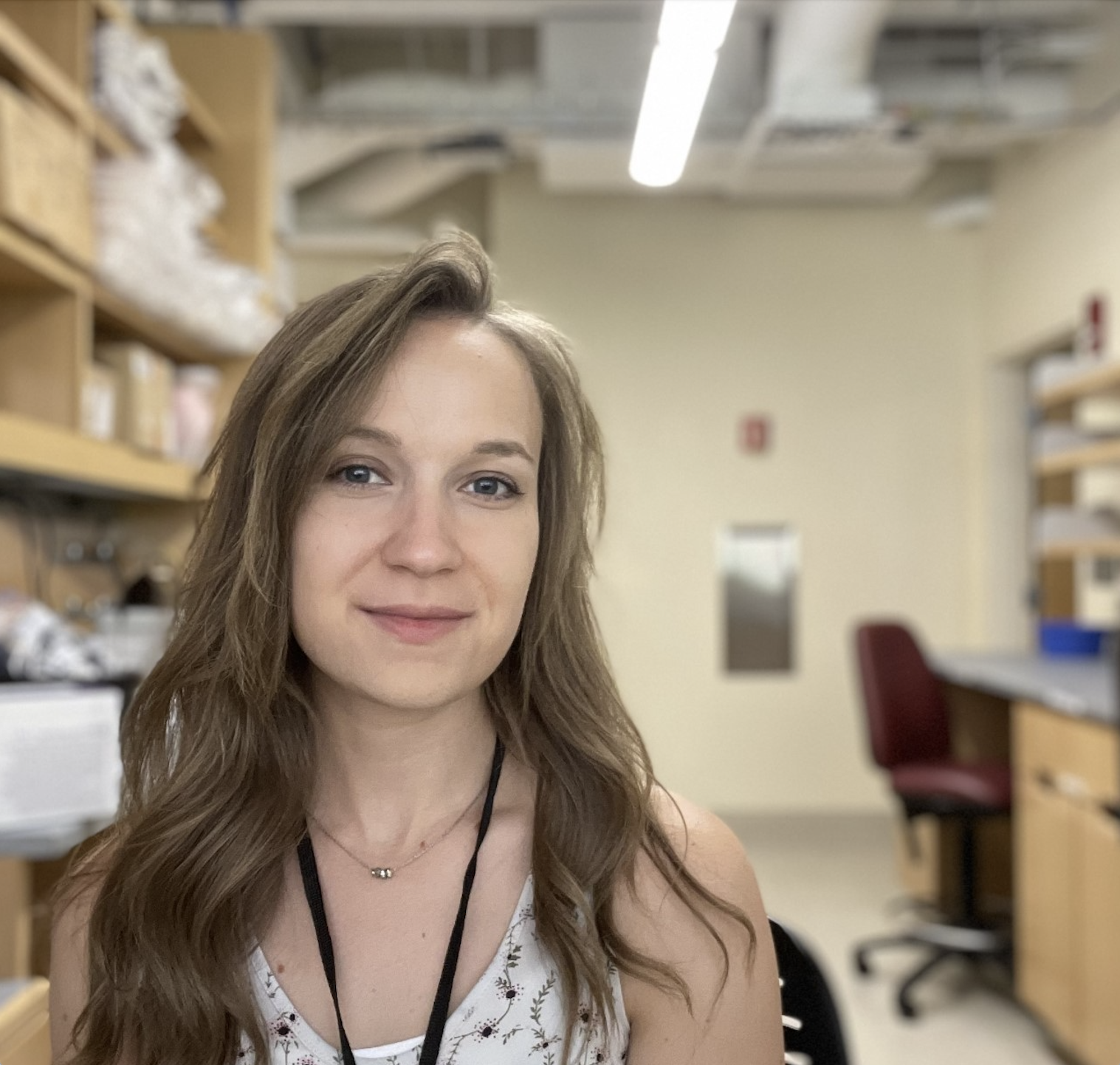Our Team

Angie Serrano
Principal Investigator | maserr@bu.edu
Assistant Professor of Medicine at the Center for Regenerative Medicine (CReM), Boston University.
About Angie:
Angie is originally from Argentina. After her training at the University of Utah
in the Yost Lab, she joined Boston University in 2022 to establish her research group.
Her lab studies rare diseases arising from pathogenic variants in histone modifiers,
emphasizing vascular and neurodevelopmental biology. In her free time, Angie enjoys
riding with her family, home coffee roasting, and horror movies!

Carly Golden
PhD Candidate
About Carly:
Carly earned her B.Sc. in Biology from Mansfield University, studying biofluorescence
in coral. She completed her M.Sc. in Molecular and Cellular Biology at Brandeis University,
investigating actin-regulating proteins. Before returning to graduate school, she worked
at several companies developing AAV gene therapies for rare diseases. In the Serrano Lab,
she studies how the epigenetic regulator KMT2D controls neural progenitor cell development
using single-cell multiomics, spectral flow cytometry, and stem cell models. Outside the lab,
Carly enjoys hiking, cooking new recipes, and staying engaged with the rare disease community.

Sandeep Sreerama
MD/PhD Candidate
About Sandeep:
Sandeep graduated from the University of Central Florida with a B.Sc. in Biomedical
Science and Biotechnology, joining Boston University's MD/PhD program in 2021.
He is a PhD Candidate in the Molecular and Translational Medicine program in Dr. Serrano’s lab,
researching pericyte biology, their developmental precursors, and the epigenetic
modifier KMT2D. Sandeep enjoys board games with friends and exploring local restaurants.

Sandra Sulser Ponce De Leon
PhD Candidate
About Sandra:
Sandra is originally from Mexico City, where she began her career as a Registered Dietitian.
Her passion for studying molecular mechanisms of metabolism and chronic diseases brought her
to Boston, where she earned an MSc. in Nutrition and Metabolism. Currently, Sandra studies
how KMT2D regulates endothelial cell identity during angiogenesis, specifically in tip
and stalk cell selection and shuffling, using iPSC-derived endothelial cells and
zebrafish models.
Past Members
Zoe Hoffmann Kamrat (Undergraduate Summer Internship)
Christopher Buie (AHA SURE Fellow)
Irena Feng (MD/PhD Rotation Student)
Sophia Blankevoort (Undergraduate Summer Internship)
Emilia Serrano (Undergraduate Summer Internship)
Jack Nelson (PhD Rotation Student)
Saylor Williams (Lab Manager)